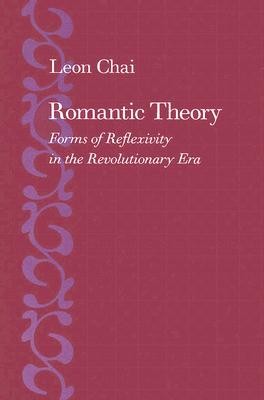
- We will send in 10–14 business days.
- Author: Leon Chai
- Publisher: Johns Hopkins University Press
- ISBN-10: 0801883962
- ISBN-13: 9780801883965
- Format: 16.1 x 23.5 x 2.5 cm, kieti viršeliai
- Language: English
- SAVE -10% with code: EXTRA
Reviews
Description
Winner of the Jean-Pierre Barricelli Prize given by the International Conference on Romanticism
This original study explores the new idea of theory that emerged in the wake of the French Revolution. Leon Chai sees in the Romantic age a significant movement across several broad fields of intellectual endeavor, from theoretical concepts to an attempt to understand how they arise. He contends that this movement led to a spatial treatment of concepts, the primacy of development over concepts, and the creation of metatheory, or the formal analysis of theory.
Chai begins with P. B. Shelley on the need for conceptual framework, or theory. He then considers how Friedrich Wolf and Friedrich Schlegel shift from a preoccupation with antiquity to a heightened self-awareness of Romantic nostalgia for that lost past. He finds a similar reflexivity in Napoleon's battle plan at Jena and, subsequently, in Hegel's move from substance to subject. Chai then turns to the sciences: Xavier Bichat's rejection of the idea of a unitary vital principle for life as process; the chemical theory of matter developed by Humphry Davy; and the work of Ãvariste Galois, whose proof of the solvability of equations using radicals ushered in the age of metatheory.
Chai concludes with reactions to theory: Coleridge's proposal of the conflict between reason and understanding as a model of theory, Mary Shelley's effort to replace theory with a different kind of relationship to external others, and Hölderlin's reflection on the limits of representation and the possibility of fulfillment beyond it.
EXTRA 10 % discount with code: EXTRA
The promotion ends in 21d.06:11:38
The discount code is valid when purchasing from 10 €. Discounts do not stack.
- Author: Leon Chai
- Publisher: Johns Hopkins University Press
- ISBN-10: 0801883962
- ISBN-13: 9780801883965
- Format: 16.1 x 23.5 x 2.5 cm, kieti viršeliai
- Language: English English
Winner of the Jean-Pierre Barricelli Prize given by the International Conference on Romanticism
This original study explores the new idea of theory that emerged in the wake of the French Revolution. Leon Chai sees in the Romantic age a significant movement across several broad fields of intellectual endeavor, from theoretical concepts to an attempt to understand how they arise. He contends that this movement led to a spatial treatment of concepts, the primacy of development over concepts, and the creation of metatheory, or the formal analysis of theory.
Chai begins with P. B. Shelley on the need for conceptual framework, or theory. He then considers how Friedrich Wolf and Friedrich Schlegel shift from a preoccupation with antiquity to a heightened self-awareness of Romantic nostalgia for that lost past. He finds a similar reflexivity in Napoleon's battle plan at Jena and, subsequently, in Hegel's move from substance to subject. Chai then turns to the sciences: Xavier Bichat's rejection of the idea of a unitary vital principle for life as process; the chemical theory of matter developed by Humphry Davy; and the work of Ãvariste Galois, whose proof of the solvability of equations using radicals ushered in the age of metatheory.
Chai concludes with reactions to theory: Coleridge's proposal of the conflict between reason and understanding as a model of theory, Mary Shelley's effort to replace theory with a different kind of relationship to external others, and Hölderlin's reflection on the limits of representation and the possibility of fulfillment beyond it.


Reviews